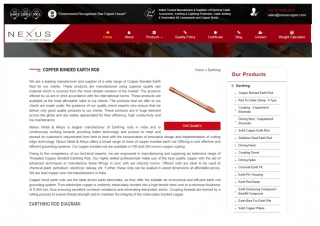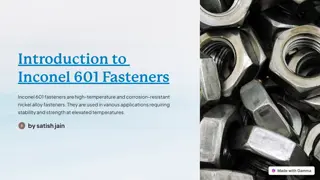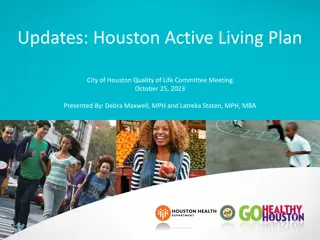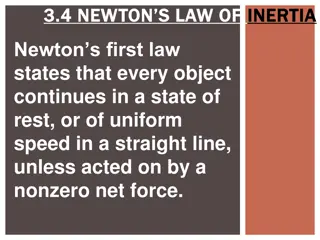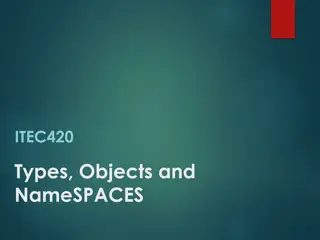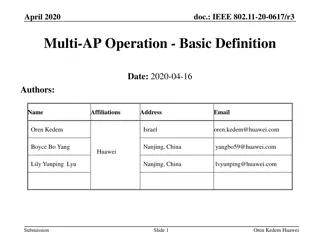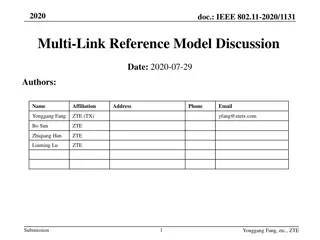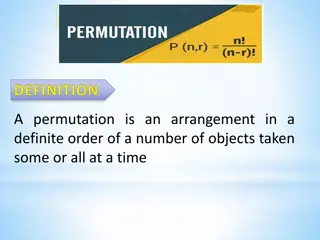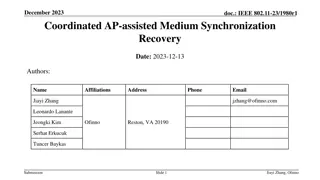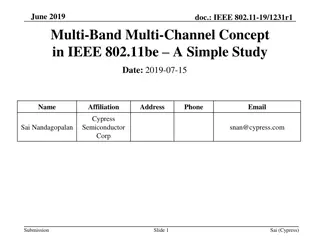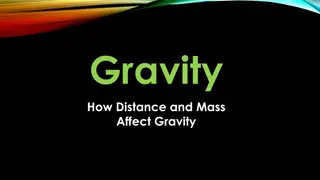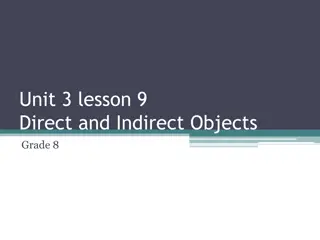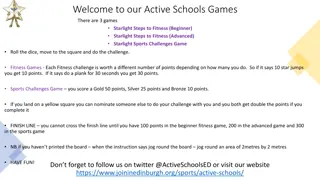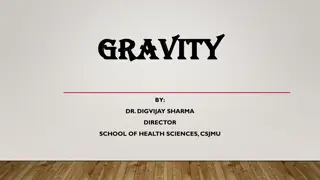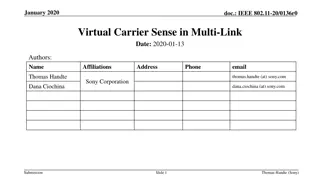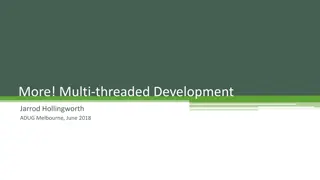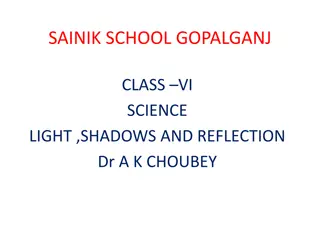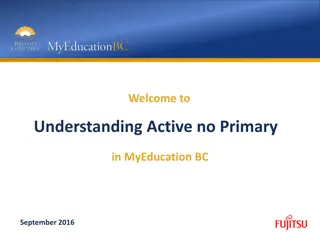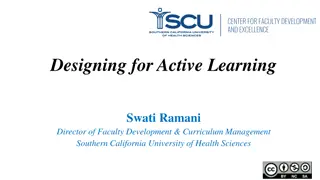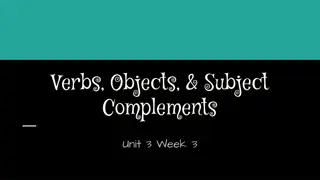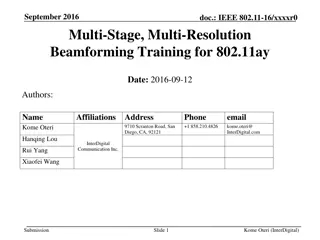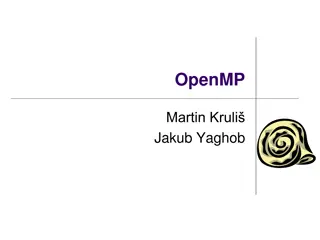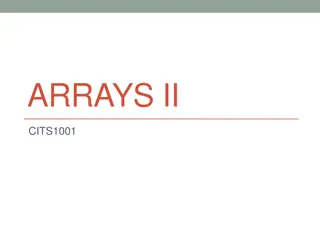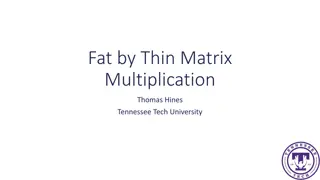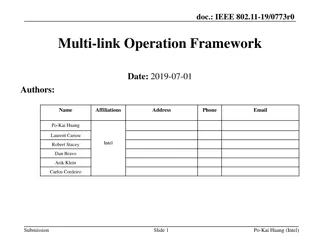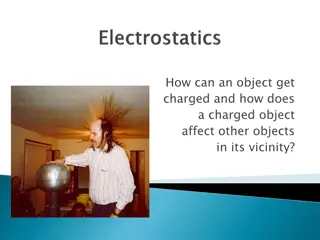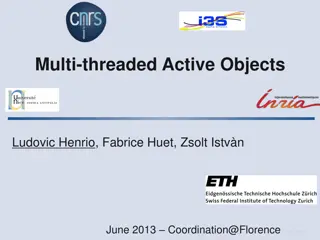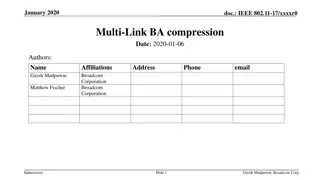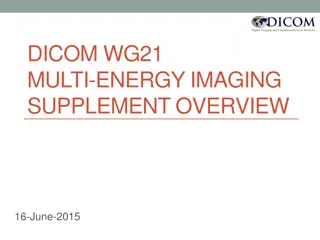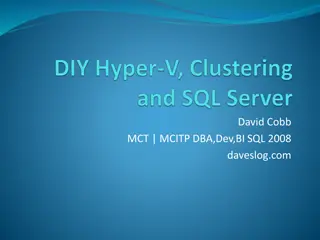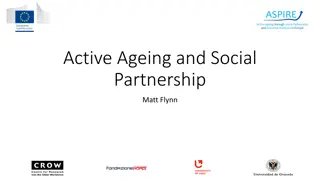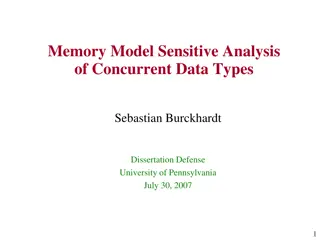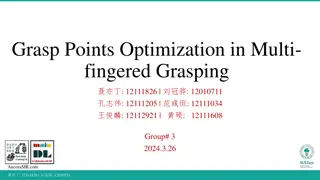Copper Bonded Earth Rod, Copper Bonded Rod, Threaded Copper Bonded Earthing Rod
We are a leading manufacturer, exporter, and supplier of a wide range of Copper Bonded Earth Rod, Copper Bonded Rod, Threaded Copper Bonded Earthing Rod, Copper Bonded Steel Rod at very cheap prices for our clients from Mumbai, India.
9 views • 4 slides
Stainless Steel 304 Stud Bolt | UNS S30400 Fasteners - fas10
Manufacturer of Stainless Steel 304 Stud Bolt in India, buy UNS S30400 Full Threaded Stud Bolt, ASTM A193 SS 304 Double End Threaded Rod, Din 1.4301 Half Threaded Rod in different sizes and grades at wholesale price in Mumbai, India.
2 views • 9 slides
Introduction-to-Inconel-601-Fasteners
Werkstoff Nr 2.4851 Bolt Supplier India, ASTM B166 Inconel 601 Fasteners Manufacturer, UNS N06601 Threaded Rod stockist, Werkstoff Nr 2.4851 Threaded Rod , Inconel 601 Fasteners
0 views • 6 slides
Enhancing Professional Learning Through Active Listening Framework
Explore a comprehensive professional learning resource focusing on inclusion, wellbeing, and equalities for Scotland's educators and learners. The resource includes slides on active listening, interconnectivity, and guidance on how to utilize the material effectively. Dive into the National Model fo
11 views • 24 slides
Houston Active Living Plan Overview
The Houston Active Living Plan is a comprehensive initiative focused on improving the health and quality of life for Houston residents by promoting active lifestyles, access to healthy foods, and tobacco-free environments. The plan addresses key health concerns such as obesity, high blood pressure,
0 views • 14 slides
Understanding Newton's First Law of Inertia
Newton's first law of inertia states that objects remain at rest or in uniform motion unless acted upon by an external force. This law, also known as the law of inertia, explains how objects tend to maintain their current state of motion unless influenced by an external force. Objects at rest stay a
0 views • 14 slides
Understanding Classes and Objects in Programming
In programming, classes are fundamental building blocks that define the structure and behavior of objects. Classes contain properties, methods, and events that allow interaction between objects. Objects are instances of classes, created using the `new` keyword. Classes help organize code, encapsulat
0 views • 29 slides
Understanding Multi-AP Operation in IEEE 802.11-20-0617/r3
Explore the basic definitions and key features of Multi-AP operation in the IEEE 802.11 standard. Learn about Multi-AP Candidate Set (M-AP-CS) and Multi-AP Operation Set (M-AP-OS) along with their participants and formation. Delve into the concepts of Coordinator AP, Coordinated AP(s), and reliable
0 views • 19 slides
IEEE 802.11-2020 Multi-Link Reference Model Discussion
This contribution discusses the reference model to support multi-link operation in IEEE 802.11be and proposes architecture reference models to support multi-link devices. It covers aspects such as baseline architecture reference models, logical entities in different layers, Multi-Link Device (MLD) f
1 views • 19 slides
Understanding Permutations in Mathematics: Concepts and Examples
Permutations are arrangements of objects in a specific order, where the number of ways objects can be arranged is calculated based on distinct objects or objects with certain restrictions. Learn about the principles of permutations, the formula to determine permutations, and how to calculate them wi
1 views • 25 slides
Understanding the NAESB Nomination Models for Ranking and Comparisons
Explore the NAESB Nomination Models used in the energy industry for ranking and comparisons. Learn about threaded and non-threaded pathed activities, as well as how ranks are applied to scheduling restrictions and balancing transactions. Discover the flexibility and dynamics of these models in manag
0 views • 10 slides
IEEE 802.11-23/1980r1 Coordinated AP-assisted Medium Synchronization Recovery
This document from December 2023 discusses medium synchronization recovery leveraging multi-AP coordination for multi-link devices. It covers features such as Multi-link device (MLD), Multi-link operation (MLO), and Ultra High Reliability (UHR) capability defined in P802.11bn for improvements in rat
0 views • 8 slides
Understanding Multi-Band Multi-Channel Concept in IEEE 802.11be
Exploring the benefits of Multi-Band Multi-Channel (MBMC) operation in IEEE 802.11be, this study delves into the efficient use of spectrum, increased data rates, and network load balancing. It also discusses the envisioned usage models and compares Single Band Operation with Multi-Band Operation, hi
1 views • 20 slides
Understanding Gravity: The Impact of Distance and Mass
Objects with mass exert gravitational force, influencing each other based on mass and distance. Gravity, a fundamental force, keeps objects like Earth and the moon in orbit and affects how objects fall towards each other. The relationship between distance and gravity is crucial, affecting the streng
0 views • 12 slides
Understanding Direct and Indirect Objects in Grammar
Direct and indirect objects are essential components of sentences, helping clarify the action and recipients involved. Direct objects receive the action directly, answering the questions "Whom?" or "What?" Indirect objects indicate to whom or for whom the action is done, always appearing between the
0 views • 12 slides
Active Schools Games: Fun Fitness and Sports Challenges Await!
Join the exciting Active Schools Games featuring Starlight Steps to Fitness (Beginner), Starlight Steps to Fitness (Advanced), and Starlight Sports Challenges Game. Roll the dice, complete challenges, earn points, and race to the finish line in these engaging fitness and sports activities. Choose op
0 views • 8 slides
Understanding Gravity and Center of Gravity in Physics
Gravity is the force of attraction between masses, such as Earth and objects. It gives weight to objects and has a magnitude of 32ft/s2 on Earth. The Center of Gravity (COG) is a hypothetical point where all mass appears concentrated. It plays a crucial role in determining how objects balance and mo
0 views • 13 slides
Virtual Carrier Sense in Multi-Link Networks
This document discusses the implementation and advantages of virtual carrier sense in multi-link networks under the IEEE 802.11 standard. It explores the operation of multi-link setups, asynchronous communication benefits, and the necessity of multiple contention channels. The concept of NAV (Networ
2 views • 11 slides
Advanced Multi-Threaded Development Overview
Explore the challenges and tips for developing multi-threaded applications in a workshop conducted by Jarrod Hollingworth in Melbourne. Learn about thread safety, Delphi Parallel Programming Library, and delve into low-level thread details. Dive into parallel programming with XE7+ and discover TPara
0 views • 15 slides
Understanding Light, Shadows, and Reflection in Science
Light is a vital form of energy that helps us see objects. Luminous objects emit light, while non-luminous objects do not. Understanding how light interacts with objects, creating shadows and reflections, is crucial in science. Transparent objects allow light to pass through, translucent objects all
0 views • 13 slides
Understanding Active vs Primary Status in Education System of British Columbia
In the education system of British Columbia, students classified as Active no Primary are those who are no longer active in their Primary School (School of Record) but are active in a Secondary School. This status affects reporting, tracking, and school record maintenance. Schools and Districts have
0 views • 8 slides
Enhancing Learning Through Active Engagement: Strategies and Insights
Explore the concept of active learning with Swati Ramani, Director of Faculty Development & Curriculum Management at the Southern California University of Health Sciences. Discover the practical applications of active learning, key learning outcomes, and strategies for effective implementation. Dive
1 views • 19 slides
Performance Aspects of Multi-link Operations in IEEE 802.11-19/1291r0
This document explores the performance aspects, benefits, and assumptions of multi-link operations in IEEE 802.11-19/1291r0. It discusses the motivation for multi-link operation in new wireless devices, potential throughput gains, classification of multi-link capabilities, and operation modes. The s
0 views • 30 slides
Insights from Residents on Active Travel in Doncaster
This report highlights findings from a survey on active travel in Doncaster, covering respondent demographics, levels of active travel, influencing factors, preferred transport methods, perceptions, future plans, and key insights. Key findings include the age groups and employment status of responde
0 views • 35 slides
Understanding Verbs, Objects, and Subject Complements in Grammar
Learn about direct objects, indirect objects, and subject complements in grammar. Direct objects receive the action of the verb, while indirect objects indicate to whom or what the action is done. Subject complements follow linking verbs and describe or identify the subject. Examples and images are
0 views • 5 slides
Multi-Stage, Multi-Resolution Beamforming Training for IEEE 802.11ay
In September 2016, a proposal was introduced to enhance the beamforming training procedures in IEEE 802.11ay for increased efficiency and MIMO support. The proposal suggests a multi-stage, multi-resolution beamforming training framework to improve efficiency in scenarios with high-resolution beams a
0 views • 11 slides
Introduction to OpenMP: A Parallel Programming API
OpenMP, an API for multi-threaded, shared memory parallelism, is supported by compilers like C/C++ and Fortran. It consists of compiler directives, runtime library resources, and environment variables. The history spans various specification versions, with features like tasks, SIMD, and memory model
0 views • 33 slides
Understanding Arrays of Objects in Programming
This lecture delves into the concept of arrays of objects, showcasing multi-dimensional arrays and discussing the steps involved in handling arrays of primitive types versus arrays of objects in Java programming. It includes insights on declaring, creating, and populating arrays, along with a practi
0 views • 22 slides
Insights into Matrix Multiplication Performance Optimization
Explore the performance of matrix multiplication with fat and thin matrices using experimental setups with different hardware configurations. Evaluate single-threaded versus multi-threaded performance and strategies for enhancing performance in the fat-by-thin region.
0 views • 15 slides
IEEE 802.11-19/0773r0 Multi-link Operation Framework Summary
The document discusses the multi-link operation framework for IEEE 802.11-19/0773r0, focusing on load balancing and aggregation use cases. It introduces terminology related to multi-link logical entities and provides examples of multi-link AP and non-AP logical entities. The framework considers stee
0 views • 16 slides
Understanding Electric Charge and Interactions Between Objects
Matter is composed of neutrons, protons, and electrons with different charges. Being charged means having an excess or shortage of charge. Grounding, insulators, conductors, and methods of charging play important roles in how objects get charged. By contacting charged objects with objects that can g
0 views • 33 slides
Understanding Multi-morbidity and Deprivation in UK General Practice
Exploring the association between multi-morbidity, deprivation, and life expectancy in the context of UK general practice. The research aims to quantify socio-economic inequalities in chronic disease onset and life expectancy, particularly among older populations with multi-morbidity. Methods includ
0 views • 27 slides
Multi-threaded Active Objects: Issues and Solutions
The document delves into the realm of multi-threaded active objects, exploring their principles, limitations, related works, and solutions. It covers topics such as asynchronous method calls, first-class futures, and the risks associated with active objects. Additionally, it compares various approac
0 views • 29 slides
IEEE 802.11-17: Enhancing Multi-Link Operation for Higher Throughput
The document discusses IEEE 802.11-17/xxxxr0 focusing on multi-link operation for achieving higher throughput. It covers motions adopted in the SFD related to asynchronous multi-link channel access, mechanisms for multi-link operation, and shared sequence number space. Additionally, it explores the
0 views • 14 slides
Overview of DICOM WG21 Multi-Energy Imaging Supplement
The DICOM WG21 Multi-Energy Imaging Supplement aims to address the challenges and opportunities in multi-energy imaging technologies, providing a comprehensive overview of imaging techniques, use cases, objectives, and potential clinical applications. The supplement discusses the definition of multi
0 views • 33 slides
Understanding Active/Active SQL Clusters for High Availability
Discover the importance of Active/Active SQL clusters for ensuring 24/7 availability of your database servers. Learn about the benefits, setup process, and the high availability solution it offers for the entire server instance. Follow a detailed step-by-step guide for setting up SQL Active/Active c
0 views • 18 slides
Understanding and Avoiding Deadlocks and Livelocks in Concurrent Programming
Deadlocks and livelocks are common issues in multi-threaded programming. Deadlocks occur when two or more threads are waiting for each other to release a resource, leading to a standstill. Livelocks, on the other hand, involve threads that are actively trying to resolve a resource conflict but end u
0 views • 43 slides
Active Ageing and Social Partnership Project Overview
This project, funded by the European Commission, focuses on how social partners engage in promoting active ageing in the workforce. It aims to develop and implement interventions supporting older workers, investigate the shift towards active ageing, and provide resources for social partners. An agre
0 views • 29 slides
Memory Model Sensitive Analysis of Concurrent Data Types
This doctoral dissertation defense presentation discusses the CheckFence method as a valuable tool for designing and implementing concurrent data types to address bugs in multi-threaded software executions. It focuses on the problem of relaxed memory models and the need for memory ordering fences to
0 views • 61 slides
Optimization of Grasp Points in Robotic Manipulation
Grasp points optimization in multi-fingered robotic grasping aims to find optimal positions for applying gripper forces, enabling efficient robotic manipulation of irregular objects while maximizing stability. Leveraging techniques from papers on multi-fingered force computation and robotic grasp de
0 views • 9 slides
